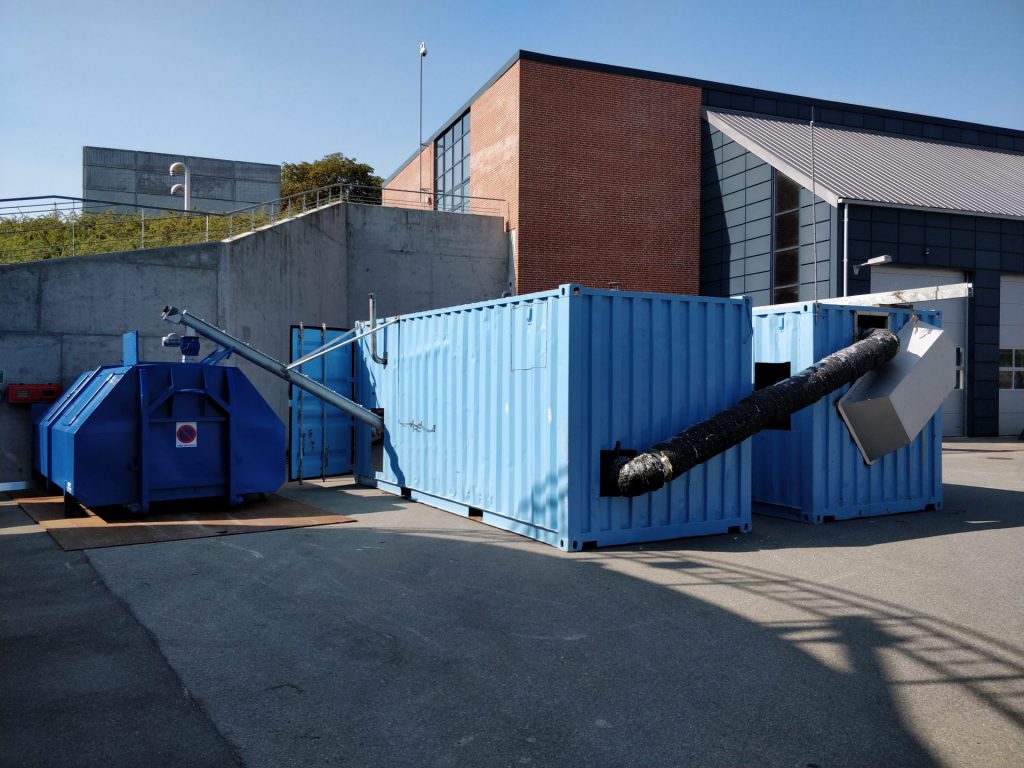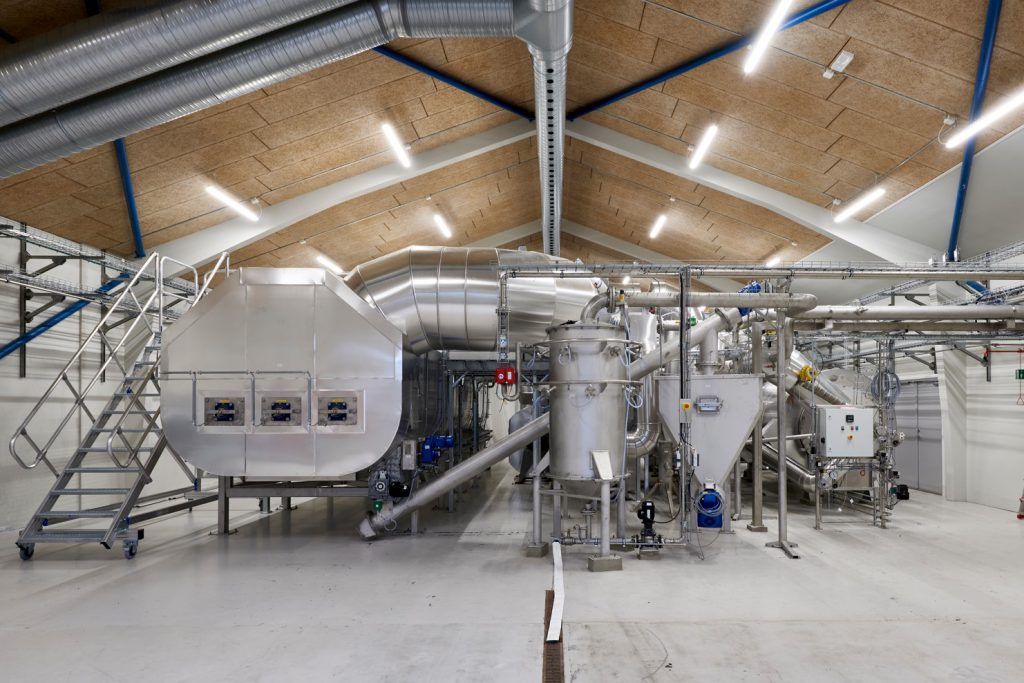Sustainable sludge drying, and pyrolysis solution for Municipal Waste Water.
Since March 2017 AquaGreen has been working on the development and installation of a sustainable, combined steam dryer and pyrolysis solution. The solution has since August 2018, been installed at a municipal waste water treatment plant in Odense, Denmark, where dewatered sewage sludge has been successfully turned into biochar.
The development has been funded by the Danish fund “Markedsmodningsfonden”, with € 675.000 (DKK 5.043.000).
The sewage sludge is supplied through a pipe to the steam dryer directly from the waste water treatment plant. We use superheated steam to dry the sludge, and through our pyrolysis process we turn the dried sludge is into a marketable biochar, a fertilizer and a soil improver with plant available phosphorus. The energy source for the drying process is the energy embedded in the sludge. During the pyrolysis process, the sludge decomposes, and we burn the gasses, to generate the energy required for the drying process. The steam is generated by evaporation the water in the sludge. During the drying process we condense the excess steam at 80°C, to allow the customer to use it for local heating purposes or sell it to district heating companies.
The development has been done together with the Danish Technical University (DTU), Copenhagen’s University and SEGES.
The participants have been responsible for performing the following tasks:
DTU: Apart from supporting the development of the technical solution, DTU has carried out an LCA analysis, documenting the carbon footprint of our technology, analyzed and characterized sewage sludge and sewage sludge pyrolysis char and tested and developed methods for speciation of inorganic P- chemistry in chars/ashes from thermal conversion of sewage sludge and other P-rich waste products. Furthermore, DTU has developed a model to predict the chemical form of P, as a function of pyrolysis parameters, i.e. air flow, temperature and feedstock chemistry.
Copenhagen’s University has performed approximately 200 controlled lab tests, documenting the plant availability of the Phosphorus
SEGES has performed field trials at two different locations in Denmark. It has recently been decided to prolong the field trials, which will then give us three years data about the plant availability and the efficiency of the phosphorus in our biochar.
We thank the project owner DANVA, the Danish Water and Wastewater Association and Markedsmodningsfonden for giving us this great opportunity to show how well our technology works.
In case you are interested, we are more than happy to share more information about this project.



